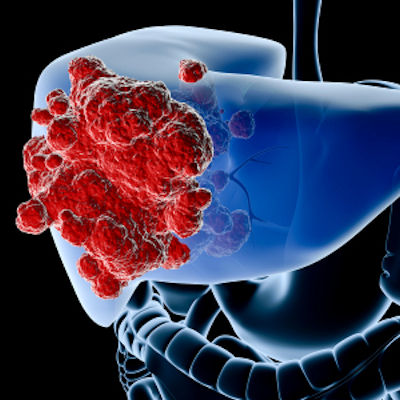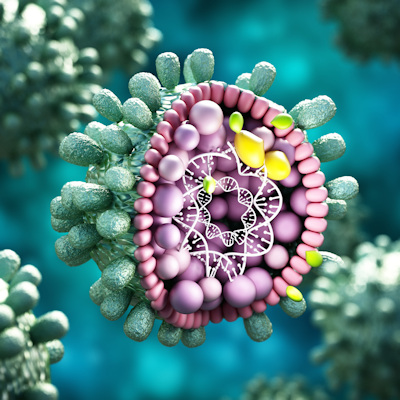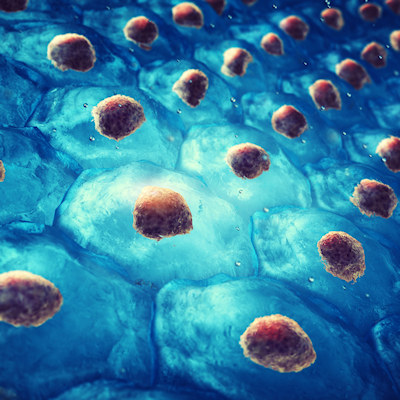March 14, 2023 -- Small molecules that are activated by an enzyme produced by some tumors could improve the treatment of liver cancer, a study run by scientists at the National Institutes of Health (NIH) and Massachusetts General Hospital suggests.
Researchers at the two organizations began working together to identify molecules that may be effective in patients with mutations in IDH1, an enzyme implicated in the cholangiocarcinoma form of liver cancer. Further analyses of one of the hit molecules, YC-1, found that it had no effect on the mutation. Rather, the molecule's activity against liver cancer cells stemmed from its interaction with another enzyme.
The enzyme, SULT1A1, activated the molecule and made it toxic to tumor cells. In the absence of the enzyme, YC-1 had no effect on liver cancer cells, suggesting that it is a prodrug that may lie dormant until it is exposed to conditions in the tumor microenvironment. SULT1A1 is highly expressed in a large subset of intrahepatic cholangiocarcinomas and hepatocellular carcinomas, the main types of primary adult liver cancer.
Writing in Nature Cancer, the researchers describe their work aimed at understanding how YC-1 interacts with the SULT1A1 enzyme and the effects it has on cancer cells. The work revealed that the enzyme sulfonates YC-1 and thereby stimulates covalent binding to lysine residues in protein targets.
In immunodeficient mice, YC-1 caused the rapid regression of SULT1A1-positive tumors, resulting in complete responses within eight days. The molecule was ineffective against SULT1A1-negative tumors. Mice with SULT1A1-positive tumors lived longer than their counterparts without the enzyme when YC-1 was given for 14 days and then withdrawn.
To assess the broader implications of the work, the researchers performed a computational analysis to define a group of related SULT1A1-activated molecules with distinct target profiles. Nabeel Bardeesy, PhD, a liver cancer specialist at Massachusetts General Hospital, outlined the therapeutic applications of the findings in a statement.
"We think these molecules have the potential to be an untapped class of anticancer drugs that depend on SULT1A1 for their activity against tumors," Bardeesy said. "Our results suggest there could be other SULT1A1-dependent compounds with ranges of different targets. Identifying such compounds and targets on cells could have potential implications for developing other types of small molecules and drugs, not just limited to these cancers."
Other cancers express related enzymes -- SULT4A1, for example, is active in the brain -- and could be used to activate drug molecules, opening opportunities to apply the same approach to a range of different diseases.
Copyright © 2023 scienceboard.net










